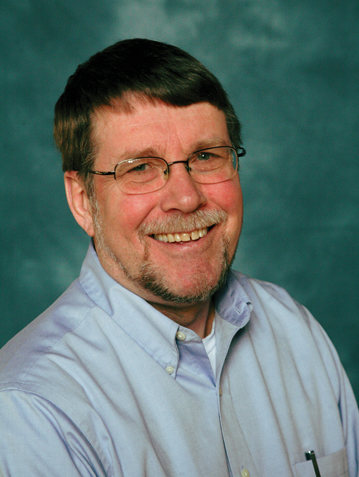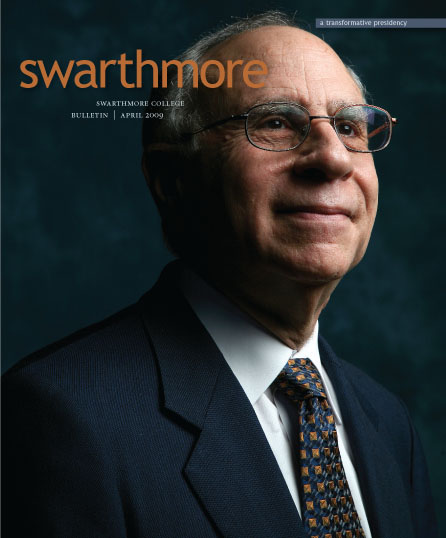Parlor Talk
I’ll never forget the Saturday in December 2000 when the Board of Managers decided to end Swarthmore’s football program. A colleague called from campus and said, “You’d better get up here.” That evening, I covered a protest on the steps of Parrish Hall and saw Coach Pete Alvanos weeping as he stood at the microphone.
The next day, President Alfred H. Bloom and Provost Jennie Keith (who chaired the Athletics Review Committee that brought the recommendation to the Board) had planned a private meeting with student athletes to break the news. But because word had already spread on campus—and beyond—the private session became a raucous public circus in the Tarble Pavilion with hundreds of people, TV cameras, and angry shouting from players and their families. This was not the sort of discourse that Bloom had in mind and, in the end, he left grim-faced and shaken. I remember thinking, “This could be the beginning of the end of Al’s presidency.” I was dead wrong; there was so much more to accomplish in the eight-and-a-half years that remained.
During his second year as president, I wrote a profile of Al that summed up his qualities in four ways: connection, community, change, and the life of the mind. (“The Essential Alfred H. Bloom,” May 1993 Bulletin).
About connection, I wrote: “For the gregarious, voluble 47-year-old president, connections are easily made and come in many different forms. There are intellectual, professional, and social connections, but most important for Bloom are the personal ones. He seems to make them with everyone.”
Regarding community: “For Bloom, community doesn’t end at the edge of campus. The College’s ever-widening circles include Chester and Philadelphia and, ultimately, America and the world. Bloom’s idea of community is diverse, multiracial, and multicultural. It works hard to embrace those who have been outside society’s mainstream.”
About change: “Bloom is committed to developing in Swarthmore students the ability to be ‘thoughtful, sensitive agents of social change.’ He wants the College’s graduates to … ‘put their intellectual skills to the task of bringing about a better world, no matter what career path they choose.’”
And the life of the mind: “Ultimately, he suggests, it is ideas, not skills, that will move society forward…. He is an intellectual, a man for whom learning and the exchange of ideas are among the principal joys of life.”
These essentials have remained remarkably constant throughout his presidency—and most likely since he joined the faculty 36 years ago as an assistant professor of linguistics. By almost any measure, he has had a remarkably successful presidency—“A Transformative Presidency,” as Lawrence Schall ’75 writes. We congratulate Al and wish him every future success as he takes on the new challenge of leading a new New York University campus in Abu Dhabi. No one seems better qualified for this task.
In fact, at the close of my 1993 interview with Al, I asked about his intellectual interests. What would he be doing if he had the time? His reply: “Learning Arabic.”
—Jeffrey Lott
 Email This Page
Email This Page
